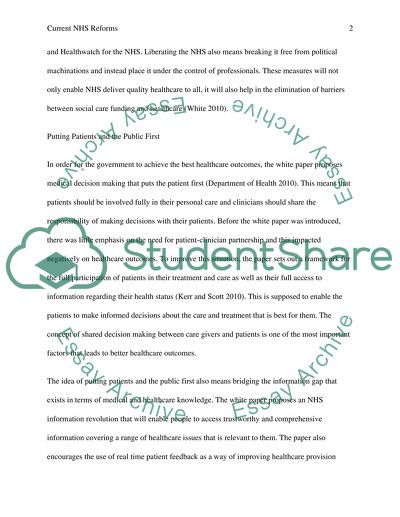Cite this document
(“Current NHS Reforms Essay Example | Topics and Well Written Essays - 2000 words”, n.d.)
Current NHS Reforms Essay Example | Topics and Well Written Essays - 2000 words. Retrieved from https://studentshare.org/health-sciences-medicine/1435647-outline-the-main-features-of-the-current-reforms
Current NHS Reforms Essay Example | Topics and Well Written Essays - 2000 words. Retrieved from https://studentshare.org/health-sciences-medicine/1435647-outline-the-main-features-of-the-current-reforms
(Current NHS Reforms Essay Example | Topics and Well Written Essays - 2000 Words)
Current NHS Reforms Essay Example | Topics and Well Written Essays - 2000 Words. https://studentshare.org/health-sciences-medicine/1435647-outline-the-main-features-of-the-current-reforms.
Current NHS Reforms Essay Example | Topics and Well Written Essays - 2000 Words. https://studentshare.org/health-sciences-medicine/1435647-outline-the-main-features-of-the-current-reforms.
“Current NHS Reforms Essay Example | Topics and Well Written Essays - 2000 Words”, n.d. https://studentshare.org/health-sciences-medicine/1435647-outline-the-main-features-of-the-current-reforms.


